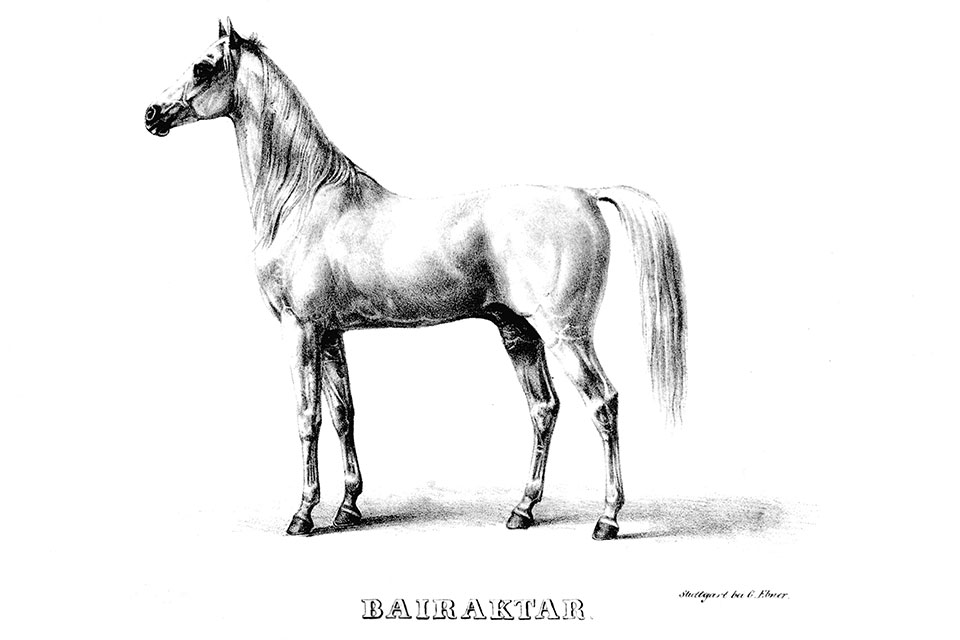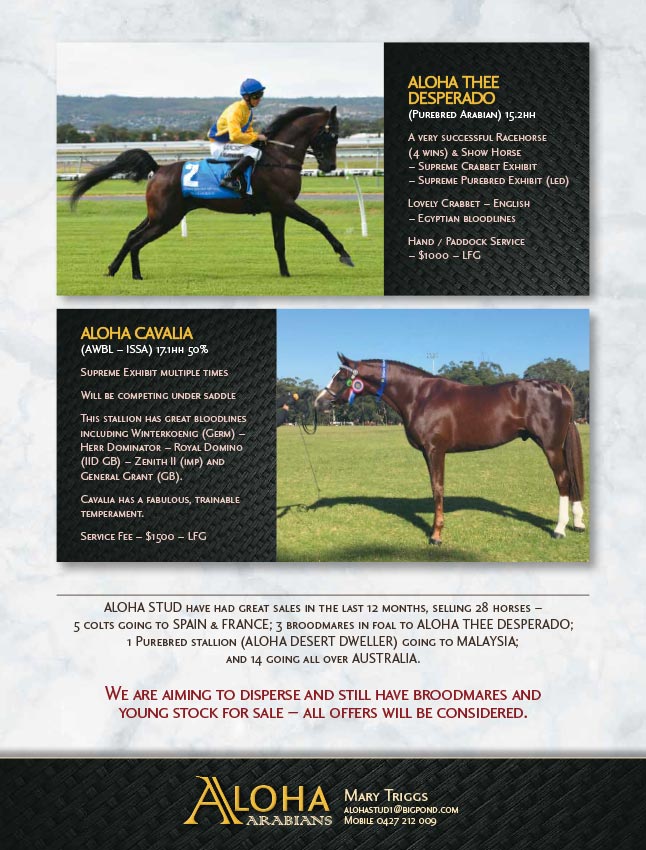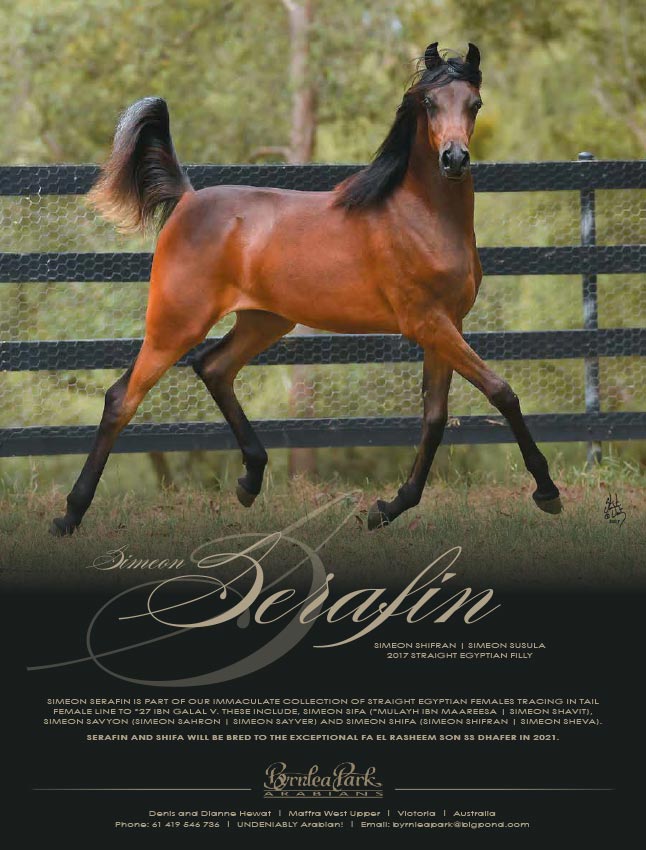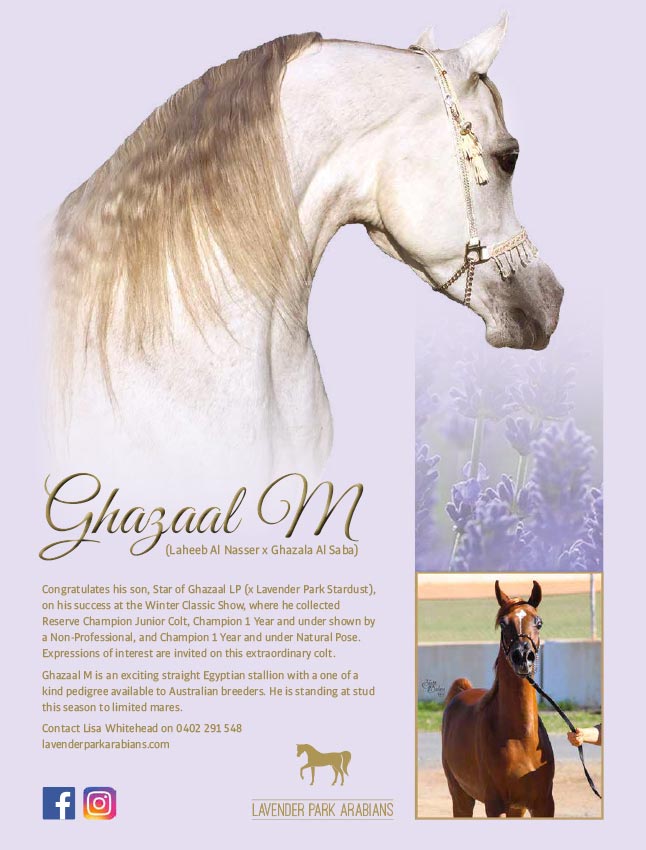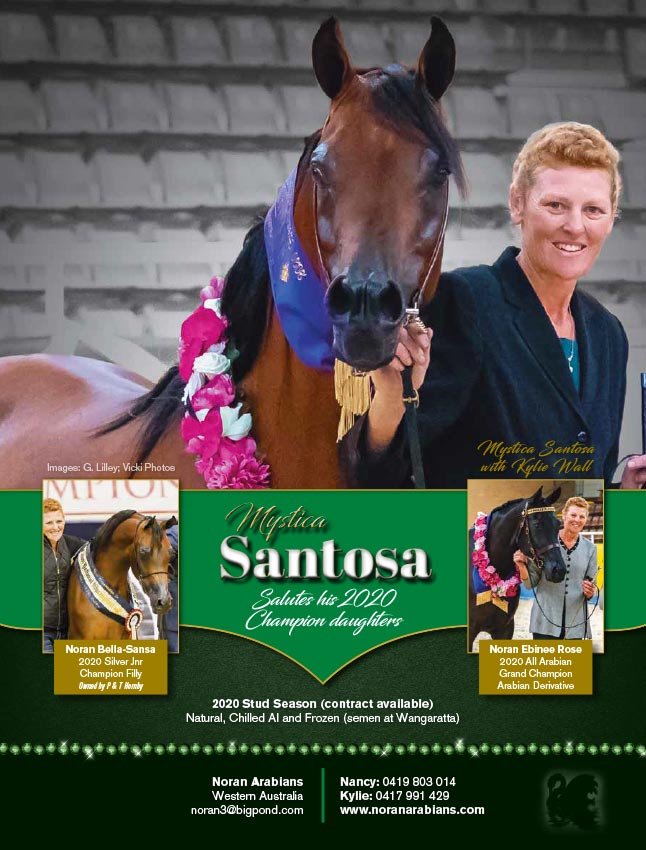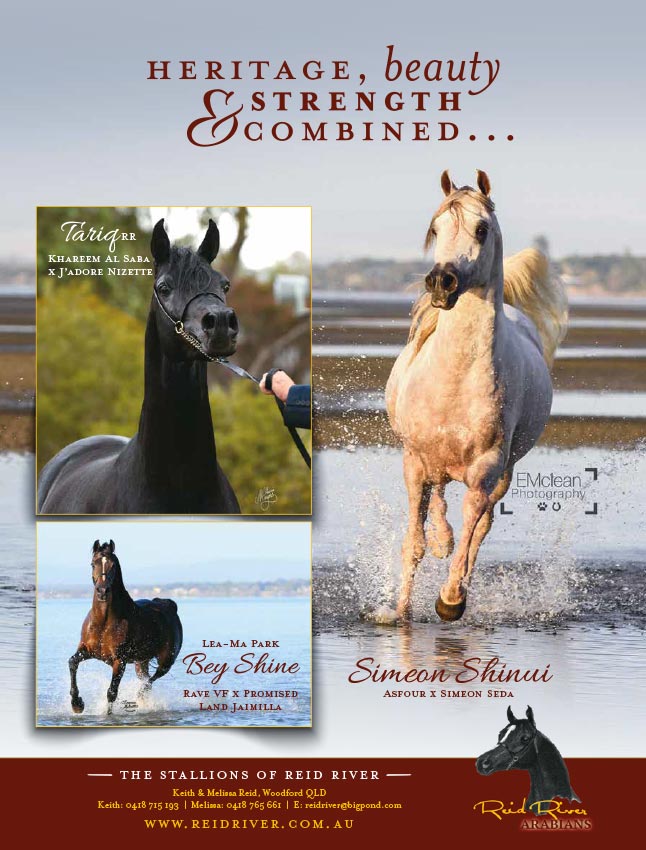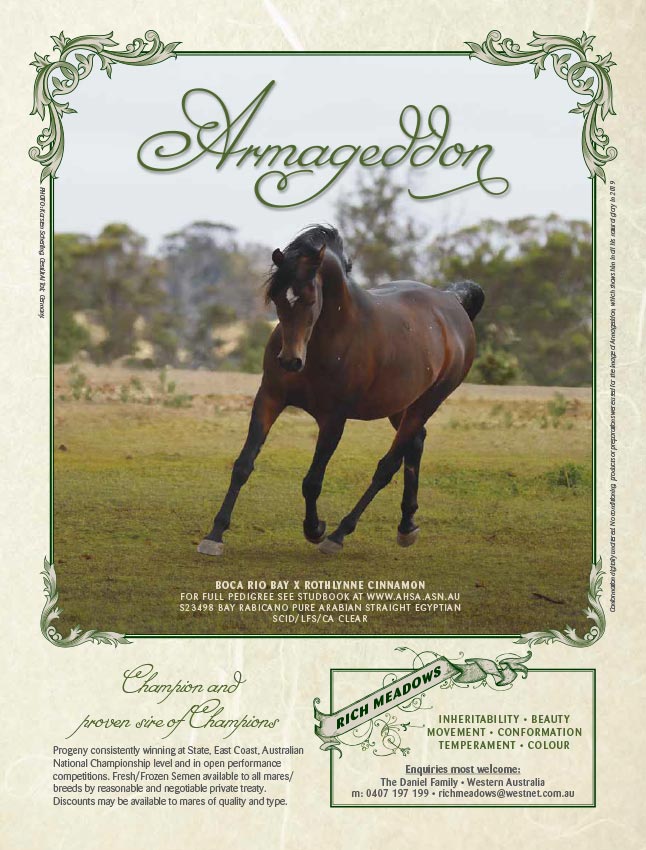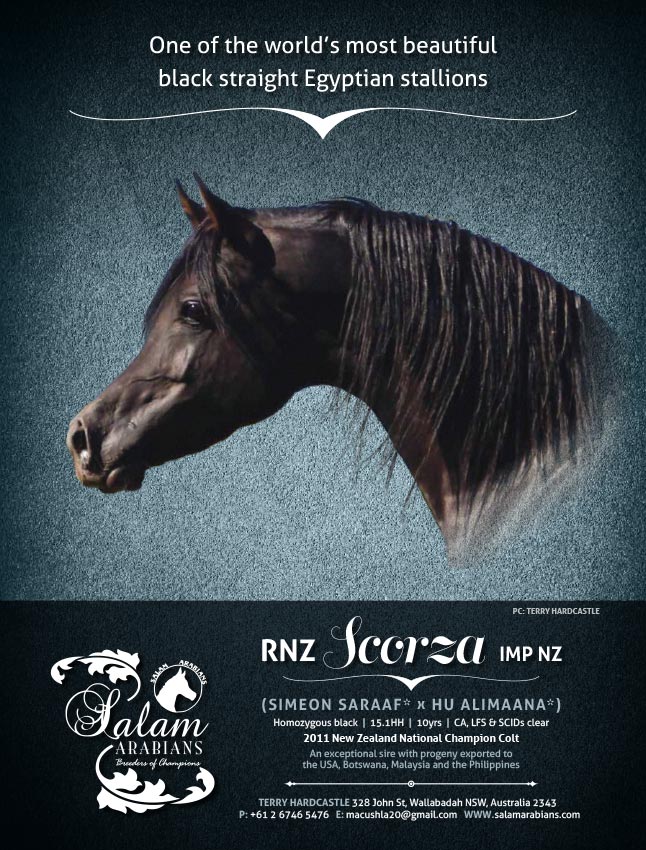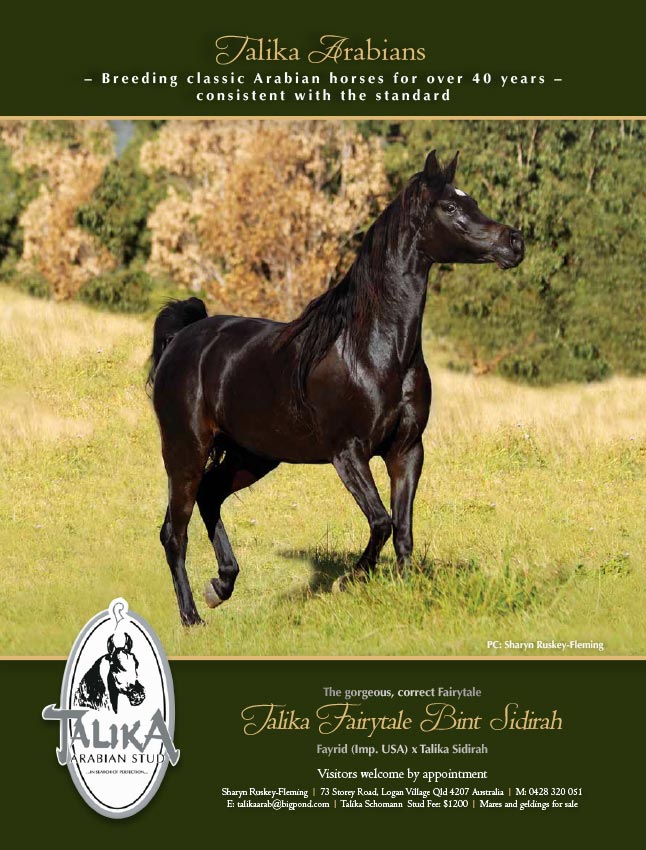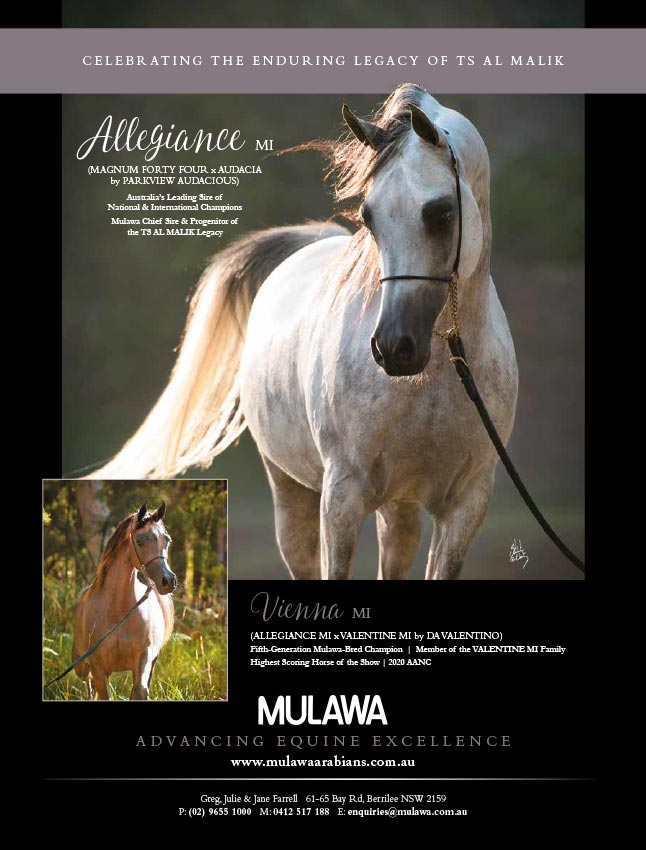
Spotlight On Arabian Derivative Mares
July 6, 2017
Key Questions To Ask When Buying A Saddle Horse
July 6, 2017A Portrait of Carl-Heinz Doemken
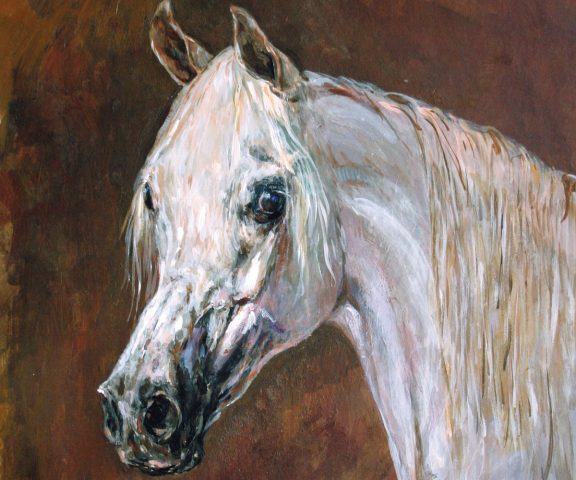
Acryl painting of the stallion Morafic. Owned by Judith Wich-Wenning
Expressive, striking colours, dynamic pencil strokes and eye-catching subjects are the trademarks of Carl-Heinz Doemken’s art. His paintings immediately draw the attention of the viewer and change the atmosphere of a whole room. Artwork by Carl-Heinz Doemken takes prime position in Arabian horse art collections around the world.
Doemken’s paintings of legendary horses, for example Nazeer, Alaa El Dine, Morafic, Ghazal are true treasures. But who was Carl-Heinz Doemken, the artist behind these great works?
Doemken possessed a large variety of talents. Arabian horse breeder, artist, journalist, author, sculptor – all this and more was Carl-Heinz Doemken. In addition, people who had the chance to meet him in person, describe him as a very unusual man. Carl-Heinz Doemken was born on April 14, 1929 in Hannover, Germany. Already in his early childhood, Carl-Heinz loved horses. Old photos show him as a two-year-old on a rocking horse and only a little later he started to ride real horses. When he was eight, Carl-Heinz saw for the first time paintings of Arabians. These works of art by the incomparable Adolph Schreyer (1828–1899) fascinated the little boy. While gazing at these paintings, Bedouins on their proud steeds almost seemed to come to life in front of him. One year later, he read the popular books by the German author Karl May. These romantic adventure novels set in the Orient were another step to fall in love with Arabian horses.
After studying German, journalism and psychology in Hamburg, Carl-Heinz Doemken returned to his hometown, Hannover, and worked as assistant director at the state-owned theatre. Here he met Constanze, a ballerina and married her shortly after. This was the beginning of a marriage that was to extend over 59 years until Carl-Heinz Doemken’s passing. In the year 1960, at the age of 30, Doemken acquired his first Arabian stallion. Arabian horses were very rare at that time in Germany and it was difficult to buy them. Doemken discovered and purchased the stallion Nizar at a circus. The chestnut descending from Crabbet bloodlines turned into one of the foundation stallions of German Arabian horse breeding. A daughter of Nizar was Nishi (x Joschi), a lovely female he immortalised in one of his expressive paintings.
Carl-Heinz was always passionate about Arabian horses, but when he saw the stallion Ghazal (Nazeer x Bukra) for the first time, he was absolutely hooked. This was the horse of his dreams; Ghazal seemed to have stepped out of a fairy tale. Ghazal – a full brother to Ansata Bint Bukra – possessed enormous type and aura. No wonder he enchanted Doemken, who took upon enormous efforts to acquire this stallion. In 1967 Doemken’s biggest wish came true: Ghazal’s former owner, Fürst zu Inn-und Knyphausen, closed his breeding program and decided to part with Ghazal. Of course Carl-Heinz immediately seized the opportunity and acquired his dream horse. Now Carl-Heinz’s most wonderful and also most successful time as a breeder started. Ghazal graced his stud farm for the next five years. In 1972 Ghazal died much too early after an accident.
Already during his lifetime, Ghazal had turned into a legend. He produced extraordinary offspring, for example the breathtaking mare Ghazala (x Hanan) for her breeder Dr Hans-Joachim Nagel. Moreover, Ghazal sired the full sisters Moheba II and Malikah (both out of Malacha). They founded legendary families and their influence can still be felt now. The stallion Muqatamm (Mahomed x Ghazalah) was the pride of his breeders Constanze and Carl-Heinz Doemken. He was line bred to Ghazal. No wonder Muqatamm became champion at the first Asil Cup ever organised.
Today the names Doemken and Ghazal are connected inseparably. With the book “Ghazal – Der Fuerst der Pferde” (“Ghazal – The Prince of Horses”) Carl-Heinz Doemken immortalised his beloved stallion. This book – a mixture of photos, paintings and sensitive, sometimes, romantic and passionate texts – turned into a source of inspiration for innumerable Arabian horse enthusiasts. It attracted many new people to fall in love with this special breed. Carl-Heinz Doemken was the author of several other very successful books about Arabian horses. For example he wrote, “Mahomed – Ghazals Erbe” (“Mahomed – Ghazal’s Heir”), “Stammpferde der Araberzucht” (“Foundation Horses of Arabian Breeding”) etc. His drawings and illustrations graced the covers of numerous books including books by Carl Raswan published by Olms Press and novels by Karl May, and were printed in innumerable magazines and newspapers. His original paintings – mainly in watercolour or acryl – are much sought-after collector’s items.
Carl-Heinz Doemken was one of the founders of the Arabian Horse Registry in Germany. Moreover, in the year 1974, the Asil Club was founded by a circle of friends meeting at the Doemkens’ farm.
People, who had the pleasure to meet Doemken personally, describe him usually as a unique character. His sense of black humour was legendary, though not always easy. Doemken was straight forward, a dazzling personality who enjoyed provoking. Carl-Heinz was not afraid of anything – or anybody. Farm visitors were usually deeply impressed. The house reminded many of a private museum. Doemken possessed a huge collection of books, memorabilia and a small zoo. They even had an aviary with small monkeys!
Carl-Heinz enjoyed handling stallions; their power and self-assurance impressed him. Doemken’s soft spot was a black stallion as he appeared in Karl May’s novel “My Rih”. He always kept a black stallion in his barn, even when he was sometimes not used for breeding. Type, dryness and nobility were the ideals for Carl-Heinz Doemken. He always “followed his own drums”, never fashion or fugitive hypes.
The Doemkens had to move farms several times. During the last years of Carl-Heinz’s life, they continued their breeding program on a smaller scale. When they became older, they started to worry who will continue their lifework in later years. Luckily a friend of Carl-Heinz introduced them to his godchild Magda. She was a student from Poland and went to stay at the farm for some days. Everything developed very well and the Doemkens finally adopted Magda.
Unfortunately Carl-Heinz Doemken fell severely ill in 2012. After a short but grave illness, he passed away on December 12, 2012 at the age of 82. Carl-Heinz Doemken has touched the lives of many people. He had enormous influence through his eye-catching artworks, sensitive books, drawings for newspapers and last but not least his breeding program. Carl-Heinz Doemken has secured himself a prominent place in Arabian horse history!




